Righting Wrongs
Clinics and Appellate Advocacy Practicum step up amid a pandemic and nationwide injustice.
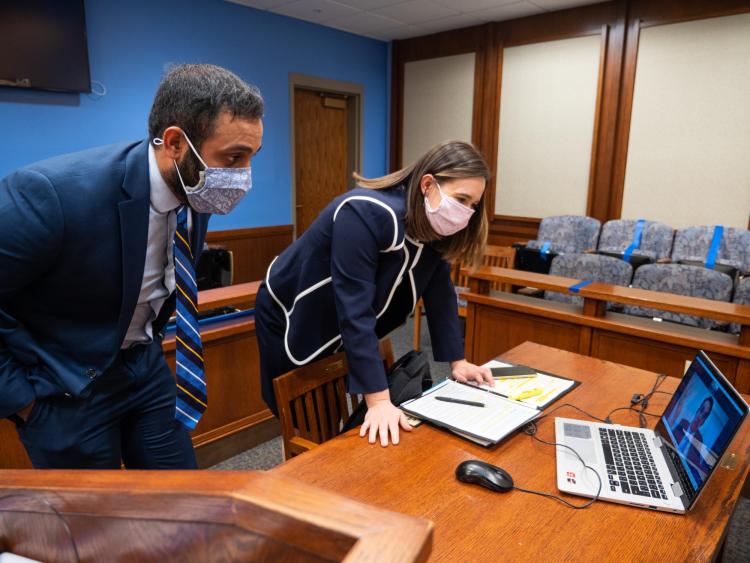
Neil Sandhu (’21) and Danielle Trujillo (’21), students in Colorado Law’s Appellate Advocacy Practicum, argued virtually before the United States Court of Appeals for the 10th Circuit in March 2021. Under the supervision of lecturer Matthew Cushing, Sandhu and Trujillo are representing a client in an excessive police force case.
On Jan. 21, 2020, the United States confirmed its first case of the novel coronavirus disease known as COVID-19.
On March 13, 2020, in Louisville, Kentucky, Breonna Taylor was fatally shot in her apartment when plainclothes officers forced entry through the door. On May 25, 2020, in Minneapolis, Minnesota, arresting police kneeled on the neck of George Floyd for 8 minutes and 46 seconds, eventually killing him after he repeatedly pleaded three words that sparked an outrage: "I can’t breathe."
On Dec. 22, 2020, Colorado confirmed the first U.S. case of a new coronavirus variant believed to be more contagious than the COVID-19 strain originally found in the country.
Living and learning in a community rippling with the tremor of severe illness, racial injustice, and national violence, University of Colorado Law School students, faculty, staff, and alumni have stepped up to address the inequality, quell the pain, and provide hope for the future.
The charge came from Dean S. James Anaya, who launched the school’s Anti-Racism and Representation Initiative in July. The initiative has engaged hundreds of students, professors, alumni, and community members by examining such topics as wrongful convictions as a function of race, the implications of nationwide injustice, and the persistent effects of racism on marginalized groups.
An overarching goal of the initiative is to "expand the law school’s role as a catalyst for direct action to combat racism and its manifestations around us, and to enhance the representation and inclusion of people of color and others from marginalized groups." The anti-racism agenda includes building awareness about racism and its manifestations, promoting anti-racist and inclusive curriculum and pedagogy, and combatting racism and its effects through public service and community engagement. These three objectives are present in the programming of the Race and the Law lecture series, which focuses on the intersection between race and law to generate conversation on how law can be transformed to serve as a tool in achieving racial and social justice.
Professor Helen Norton presented on “Race and the Constitution,” discussing the Constitution’s treatment of race and equality. “What matters is the relationship between the government’s action and longstanding racial subordination,” Norton said. “It is both morally wrong and unwise to ignore how race has made a difference and continues to make a difference in American life.”
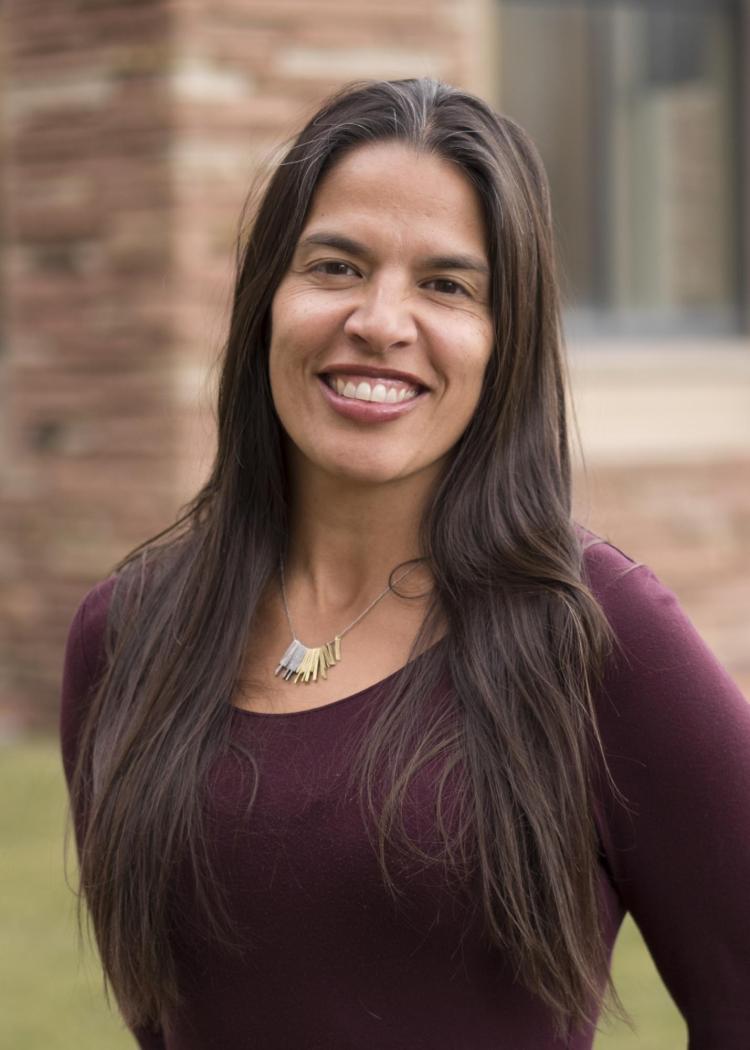
Violeta Chapin
Clinical Professor Violeta Chapin titled her presentation “When Cruelty Becomes Ordinary,” highlighting three extraordinary facets of society that she believes Americans have come to see as ordinary: juvenile prisons, the death penalty, and the detention of immigrants. All three of these spaces result in extraordinary cruelty and injustice to children and people of color that has become widely accepted as a normal part of our society. “In this country I believe we must accept that we have a deep-rooted problem with prejudice, punishment, and power,” Chapin said. “We can do better. If we have hard conversations, we can find common ground and better solutions."
Violeta Chapin
Chapin serves as director of the school’s Criminal and Immigration Defense Clinic. The Clinical Education Program focuses on community engagement, public service, and providing legal aid to underrepresented and “othered” communities. Students and clinical faculty have been part of the momentum to assist students and community members during the pandemic and a time of deep racial injustice
In response to increasing prejudice facing people of color in the U.S., Chapin and her students worked to expand the university’s UndocuAlly program. The program, which began in spring 2017, provides training to faculty and staff on the University of Colorado Boulder campus about how best to support undocumented students and staff. This summer, the Denver and Anschutz campuses began discussion to expand the programming to their students. Because of limits imposed on in-person trainings and community engagements, the Criminal and Immigration Defense Clinic is focusing on curating comprehensive material for an online platform. With this, they plan to reach an increasing number of undocumented students and provide assistance related to education, financial aid, career services, and more.
“It’s exciting, and I’m glad that more people are interested in supporting all of our students, including our undocumented ones,” Chapin said. “Our goal is to get this information in the ears of everyone possible who touches the lives of our undocumented students. There has been a great deal of trauma surrounding the instability of DACA (Deferred Action for Childhood Arrivals) that has been compounded by the uncertainty of the pandemic.”
The Criminal and Immigration Defense Clinic also provides direct legal assistance to students and young adults in the community who are eligible to renew their DACA benefits and, now, to submit initial DACA applications to U.S. Citizenship & Immigration Services.
As for the criminal side, Chapin and her students worked extensively on a clemency petition in spring 2020 for a client housed in a Colorado prison, asking the governor to release their client. The client was sentenced to 48 years in prison for nonviolent property offenses, and during the 12 years he’s been incarcerated, he has completely rehabilitated his body and mind. He has been sober for over a decade and is one of only nine prisoners in the country to have a Level 2 CrossFit certification as a coach and athlete. The petition also focused in part on the unique dangers that COVID-19 brings to crowded detention facilities and how a deadly outbreak of the virus can serve as a death sentence for inmates who have not received one.
Amid a pandemic, it is imperative for government officials in every state to consider how to reduce the prison population safely and effectively to stop the spread of a highly contagious disease. The clinic believes that an effective way to do this is by granting clemency to nonviolent offenders who have shown exemplary conduct and community service in prison and have secured full-time employment upon their release. “Colorado’s Habitual Offender Statute is extraordinarily punitive,” Chapin said. “Because of this, our client was given an astronomical sentence comparable to most homicide sentences.”
Jails and prisons are an ideal breeding ground for the spread of COVID-19 because of their highly populated environment. The clinic’s goal is to minimize the number of inmates inside Colorado facilities, which will decrease overall community spread.
"There needs to be a way for district attorneys in the state to come together and re-review sentencing for individuals who have done a lot of good while incarcerated,” Chapin said. This, in turn, will lessen the vicious impact of the virus.
Also providing criminal-related legal aid is the Criminal Defense Clinic, under the advisement of Clinical Professor Ann England. Students work with indigent clients whose legal needs have been exacerbated by COVID-19.
“I have had indigent clients who have lost jobs because of COVID-19 and have subsequently fallen into homelessness and substance abuse issues,” said Lucas Dages (’21). “These people may have meager financial means to begin with and were already at a disadvantage in our legal system, which was worsened by job loss.”
Students in the Criminal Defense Clinic have also witnessed the ways in which the pandemic, as well as social and racial injustices, have affected the court system. “Courts have been forced to postpone trials and hearings, which puts clients in jeopardy of losing their employment because they have not yet resolved their cases,” said Nikki Nelson (’22). “Because minorities are more heavily represented in the criminal justice system, these delays and their consequences have a disproportionate impact on those communities.”
Because the needs of marginalized communities have been amplified, the Criminal Defense Clinic has taken advantage of the groundswell of meaningful criminal justice reform. Students have worked with clients in Aurora Municipal Court, encountering deep-seated issues of animus in the system. “The Criminal Defense Clinic plays a vital role in combating discrimination by working to ensure that ‘innocent until proven guilty’ actually means something for our clients,” Nelson said. “The Aurora Police Department has demonstrated the pervasiveness of discrimination in the criminal justice system, so when we take clients to a trial in Aurora, we are fighting against an oppressive police regime.”
In August 2019, Aurora police confronted 23-year-old Elijah McClain, a Black man who was walking home from a convenience store. After being placed in a chokehold and then sedated by paramedics, McClain died. “The media portrayal of the Aurora Police Department’s response to Elijah McClain and the subsequent protests drew the community’s attention to the fact that these things are happening in our state,” Nelson said.
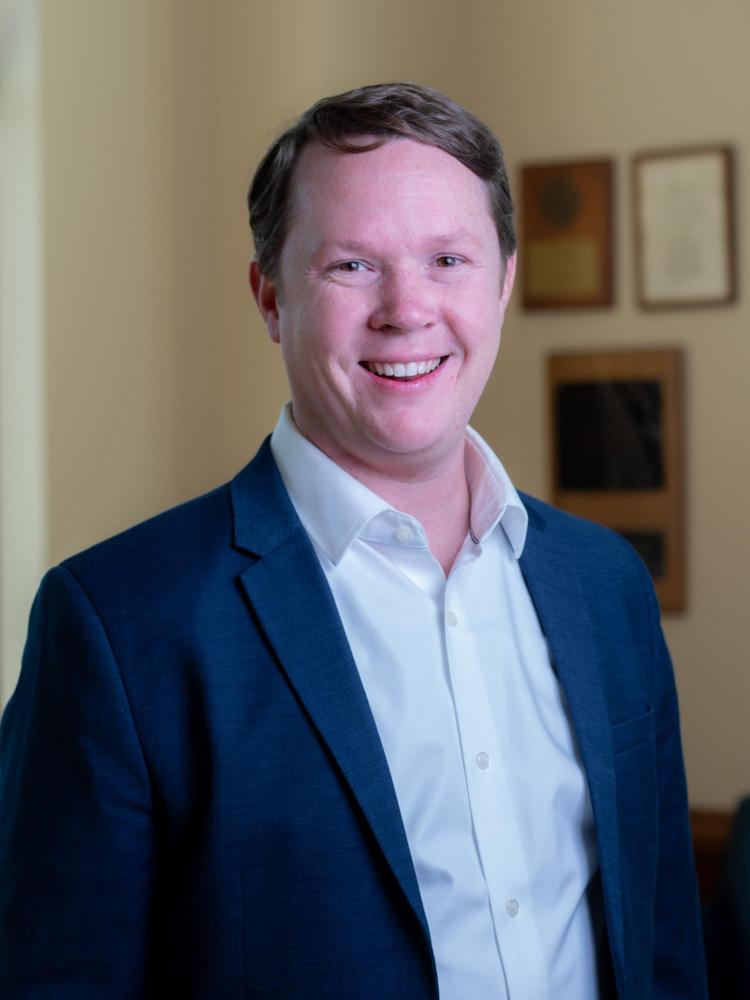
Zachary Mountin ('10)
The Civil Practice Clinic, headed by Clinical Professor Zachary Mountin (’10), also works closely with low-income clients and people of color. In response to the pandemic, the clinic has begun to represent tenants in housing and eviction matters who could no longer afford their rent due to COVID-19-related job loss.
“We helped a tenant negotiate an early termination of her lease so that she could transition to a more affordable situation,” said Matthew Forstie (’21). “Our representation also helped the tenant avoid excessive fees that the landlord tried to impose.”
The Civil Practice Clinic piloted representing people in unemployment insurance appeals. “One of our clients had lost her job due to COVID-19 but was then denied unemployment benefits even though she was qualified to receive them,” Forstie said. “We represented her in a successful appeal funded by tuition made available by the law school for student-attorneys to work in the clinic during summer 2020.”
Because of longstanding racial inequality, communities of color have less of a buffer to absorb the economic effects they are saddled with during a pandemic.
“Poor individuals are more likely to be working in jobs that expose them to the virus and are less likely to have access to health services,” said Kelly Reeves (’22). “In the employment sector specifically, high unemployment means that employers have options to replace workers at even lower wages because employee bargaining power is slim.”
Employees often rely on the ability to exit a job that becomes a risk to their health, but they need their jobs to survive no less than before the pandemic. “People are more willing to tolerate unfairness, some of which violates state and federal employment laws, and are less likely to come forward with complaints,” Reeves said.
To help remedy this problem, the Civil Practice Clinic has started taking up wage theft cases on behalf of clients. “Unemployed people may not have the money to hire an attorney to address wage theft issues, so offering free or low-cost services helps people recover their stolen wages,” Reeves said. “Even if the recovery is relatively small, the pandemic has stretched people’s budgets to the extreme, and this service is more important now.”
The Civil Practice Clinic received grant funding to expand its housing and eviction defense representation last summer. The grant, provided by the Denver Foundation as part of its efforts to combat the impact of COVID-19 on vulnerable people and communities, will allow Mountin to hire two students to represent people at risk of eviction. “As federal and state moratoria on evictions expire, this will allow the clinic to provide representation when tenants are most in need of assistance to negotiate with their landlords and stave off eviction,” Mountin said.
“The Civil Practice Clinic’s work is inextricably intertwined with issues of race and class,” Mountin said. “We seek to provide access to justice for low-income and underrepresented workers and tenants.”
The vast majority of the clinic’s clients are racial and ethnic minorities, and many are immigrants. “Structural inequalities mean that those most at risk of wage theft or eviction are low-income individuals of color, and both wage theft and eviction perpetuate these already existing inequities,” Mountin said. “Escaping the cycle of poverty is all the harder when you are not paid the full amount of your rightfully earned wages or picking up the pieces of your life after an eviction.”
To this end, the Civil Practice Clinic is helping to ease the burden of standing up for one’s rights and navigating unfamiliar systems. Students have spent countless hours gathering documents, talking to witnesses, and appearing at hearings on behalf of their clients. “There is no doubt that the burdens of COVID-19 have fallen unequally on the shoulders of those who were already on the margins,” Mountin said. “Actions at both the state and federal levels to guarantee workplace protections or freeze evictions for those affected have prevented the worst-case scenario, but many gaps in the system remain.”
Sharing the charge to address inequities is the Appellate Advocacy Practicum, directed by lecturer Matthew Cushing. Students in the Practicum work and argue on behalf of clients involved in civil appeals before the United States Court of Appeals for the 10th Circuit. Those who cannot afford a lawyer, or whose case isn’t desirable enough to be taken on contingency, are often left without legal representation. The Practicum works with the 10th Circuit to take on cases that would otherwise fall through the cracks by offering free representation to those who could not otherwise afford it.
Cushing and his students brief and argue cases before the 10th Circuit, ensuring that individual rights don’t rise and fall with the nonlucrative nature of the case. “A right is only a right if it has a remedy,” said Practicum student Neil Sandhu (’21).
Under Cushing’s supervision, Sandhu and Danielle Trujillo (’21) are representing a client who sued a Colorado city and some of its police officers claiming that an officer used “excessive force” when she shot the client while he stood in his yard. The client, who did not have an attorney when he filed his suit, had his case dismissed by the trial court. Sandhu and Trujillo appealed that decision to the 10th Circuit, briefed the legal issues on appeal, and appeared before that court for oral argument in March.
"The killings of George Floyd, Breonna Taylor, and Elijah McClain were a flash point in our country, but they were not the first injustices perpetrated by our government, nor will they be the last," Sandhu said. Ignoring such injustices excuses behaviors that escalate and calcify over time, he added.
Through the Practicum, Aja Robbins (’21) and Angela Boettcher (’21) worked on the case of a client who asserted that he had been deprived of accommodations for his disability while incarcerated. Because of the pandemic, the client’s situation worsened in a serious way. “His temporary accommodations were taken away due to lockdown, and the correctional facility refused to reinstate them after lockdown was eased,” Robbins said. “Overall, the pandemic really strengthened our resolve to fight for him.”
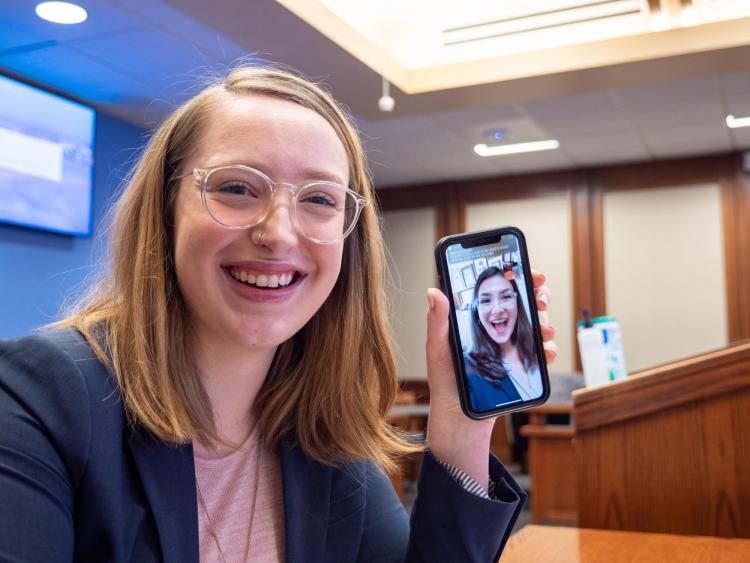
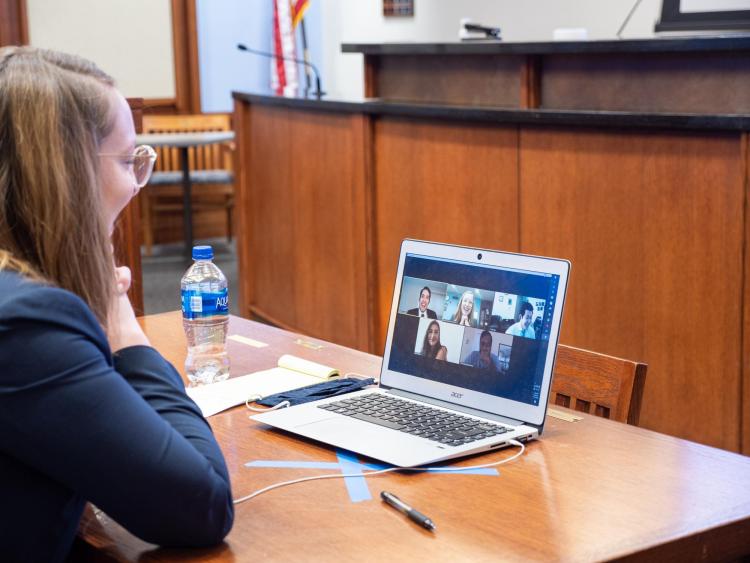
Angela Boettcher (’21) and Aja Robbins (’21) catch up with students in the Appellate Advocacy Practicum and lecturer Matthew Cushing after arguing virtually before the 10th Circuit.
Many of the cases in the Practicum are taken up on behalf of low-income and minority litigants. “The pervasive racial injustice most certainly amplifies their legal needs,” Boettcher said. “Not only do we see this through the acute injustices perpetrated by the criminal system and the carceral system more broadly, but we see this in so many indirect ways as lawyers.”
Those injustices extend to the civil sphere as well, where inequities can easily be overlooked because representation in civil matters is not guaranteed by the Constitution.
A third case taken up by the Practicum was that of a Black man who was surrounded by officers when he pulled into a gas station. “Our client was the passenger in a car driven by his white wife,” said Andres Alers (’21). “Suddenly, officers surrounded the car with guns drawn, demanding that our client turn over his license.”
The officers ran a check on the client’s license and, finding nothing, eventually released him. “They never explained why they stopped him, let alone why they approached with their guns drawn,” Alers said. “Confused and distressed, our client filed a complaint against the officers.” Although the client lost in front of the trial court, students in the Practicum were able to step in on appeal and represent him before the 10th Circuit, resulting in a favorable conclusion to the case.
The Practicum has helped several clients assert claims to redress discrimination. “Our Constitution and federal and state laws are meant to protect people from discrimination and being taken advantage of,” said Practicum student David Willner (’21). “While our courts provide access to justice for civil claims, many clients cannot afford an attorney.”
This is where programs like the Practicum and clinics come in. “I believe it is especially important for these programs to step in and help however they can right now,” Willner said. The Practicum and clinical programs provide students with an opportunity to increase the chances of success for a client. “This brings that person one step closer to finding justice for a violation of their rights,” Willner said.
While many people and groups have shined a light on the systemic inequality in the U.S., especially in the context of criminal justice, there is still much work to be done in the civil sphere.
“We are in a time of collective trauma,” Reeves said of the Civil Practice Clinic. “No group or community has been entirely spared, and that’s important to acknowledge, but the stress of a mass collective trauma exposes the inequity in our systems and introduces new levels of scarcity."
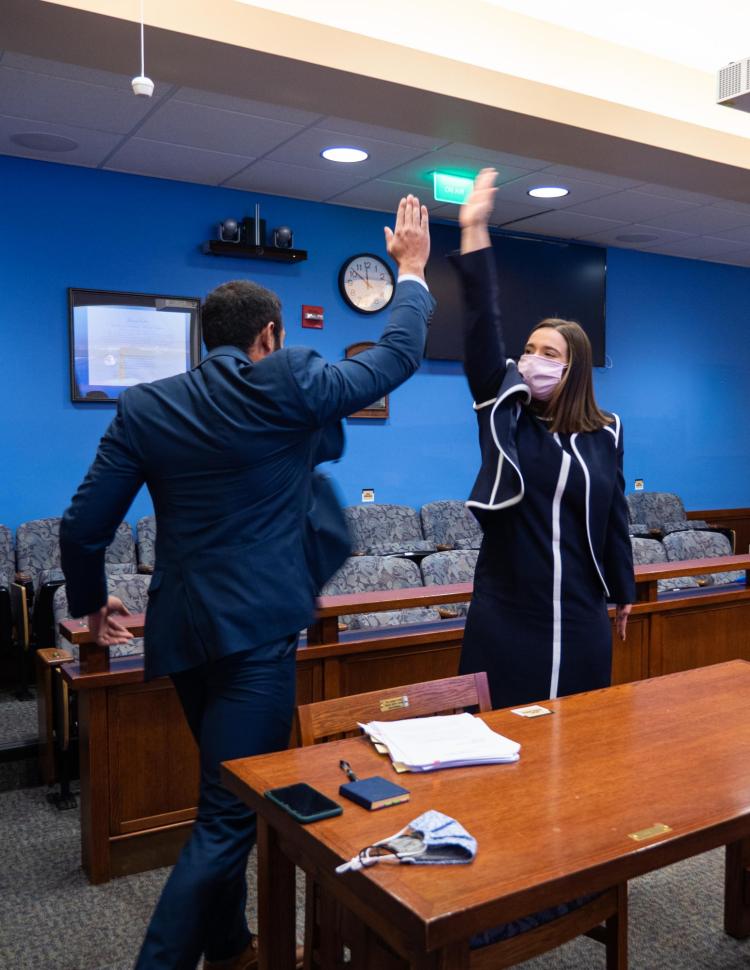
Neil Sandhu (’21) and Danielle Trujillo (’21) celebrate after delivering oral argument virtually before the 10th Circuit


